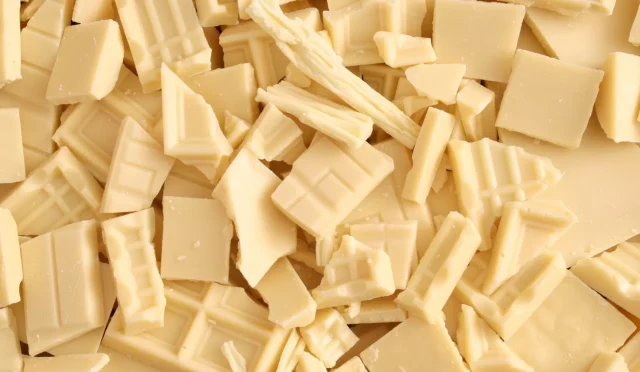What is parsley?
Parsley is a leafy green herb called petroselinum crispumdur. It has an intense aroma and taste. Parsley is mostly grown in the Mediterranean Region of our country. Parsley is a very useful herb. It can be consumed in salads, as an ornament on meals or in drinks. It can also be used as a side dish with meals. Delicious parsley is an indispensable food for the body. It is used in many recipes. It adds both health and taste to meals. 100 grams of parsley contains 36 calories, 56 mg of sodium, 554 mg of potassium, 133 mg of calcium, 133 mg of vitamin C, 50 mg of magnesium. It likes moist and wet soils very much. Parsley also has an important place in economic income. Parsley BC It has a history dating back 4000 years. It likes temperate climates. It can also be grown in cold places between spring and autumn. It is a useful nutrient that grows in the soil. There are two types of parsley, which are in the same family as celery, carrots, and cumin. One is curly and the other is straight leaf. The flat-leaf one is also known as Italian parsley. Chewing parsley is said to relieve bad breath. Parsley, known to have been planted for the first time 2,000 years ago, was used by the Greeks in wreaths. In the ancient Roman period, parsley was used to decorate salads and flowers. Since it grows in the soil, it is important to wash it thoroughly and consume it. When chopping parsley, it must be well dried. If more flavor is desired in the dishes, the stem parts should also be used. In ancient times, parsley was applied directly to the skin for cracked skin, bruises and insect bites. Apart from food, parsley is also used in cosmetic products.There is not enough evidence that parsley, which is known to be beneficial in issues such as edema , is relieving these problems. Parsley should be consumed in moderation as food. If it is to be taken in the form of an oral nutritional supplement, it should be used with the advice of a physician. Parsley seed oil applied to the skin can cause allergic reactions on the skin.
What are the benefits of parsley?
- Half a glass of parsley meets 108 percent of daily vitamin A, 53 percent of vitamin C, 547 percent of vitamin K, 11 percent of folate, 4 percent of potassium.
- It is also rich in vitamin K , which is essential for blood clotting and bone health . Parsley is an excellent source of vitamins A and C.
- It is low in calories and can be eaten with peace of mind in weight loss diets. Parsley supports bone health.
- Bones need certain nutrients to stay healthy and strong. Parsley also contains vitamin K, which is essential for bone health. It is possible to get 547 percent of the daily vitamin K in half a glass of 30 grams of parsley. Vitamin K helps build stronger bones by supporting bone-forming cells called osteoblasts. This vitamin also activates certain proteins that increase bone mineral density, a measure of the amount of minerals found in bones. Bone density is important because lower bone mineral density is associated with an increased risk of fractures, especially in older adults. Some research suggests that eating foods high in vitamin K may reduce your risk of fractures. One study found that higher vitamin K intake was associated with a 22% lower risk of fractures. Typical dietary intakes of vitamin K may be below the levels required to improve bone mineral density and reduce fracture risk. Therefore, eating foods like parsley may benefit bone health. Parsley is rich in vitamin K, a nutrient essential for optimal bone health. Eating foods high in this nutrient is linked to a reduced risk of fractures and increased bone mineral density.
- It has antioxidant properties.
- Contains cancer-fighting ingredients. Parsley contains plant compounds that may have anticancer effects. Oxidative stress (a condition characterized by an imbalance in antioxidants and free radical levels) is associated with the development of certain chronic diseases, including cancer. Parsley is particularly rich in flavonoid antioxidants and vitamin C, which can reduce oxidative stress in your body and lower your risk of certain cancers. For example, high dietary flavonoid intake, colon cancercan reduce the risk by up to 30%. Additionally, subsets of certain flavonoids in parsley, such as myricetin and apigenin, have shown anticancer activity in test-tube and animal studies. Also, eating foods rich in vitamin C can reduce your risk of cancer. 1/2 cup (30 grams) of parsley provides 53% of the RDI for this nutrient. One study found that increasing vitamin C by 100 mg per day reduced the overall risk of cancer by 7%. In addition, increasing dietary vitamin C by 150 mg per day can reduce the risk of prostate cancer by up to 21%. In summary, parsley contains several antioxidants, such as flavonoids and vitamin C, which may have cancer-fighting benefits.
- Parsley protects teeth and gums and eliminates bad breath.
- Parsley is a plant that can be good for heart health. For example, it is a good source of the B vitamin folate, with 1/2 cup (30 grams) providing 11% of the daily requirement. High intakes of dietary folate may reduce the risk of heart disease in certain populations. A large study of over 58,000 people found that the highest folate intake was associated with a 38% lower risk of heart disease. Some experts hypothesize that folate benefits heart health by lowering levels of the amino acid homocysteine. High homocysteine levels have been associated with a higher risk of heart disease in some studies. Homocysteine can affect heart health by changing the structure and function of your arteries. However, the link between this amino acid and heart disease is still unclear. Parsley,
- Parsley may have antibacterial benefits. Parsley extract has been shown in some studies to have antibacterial properties. Still, more research is needed on this subject.
- Parsley strengthens the immune system. Vitamins A, C, and K in it support immunity.
- According to studies, parsley can lower blood sugar levels in people with diabetes.
- Parsley has diuretic properties. It can be useful in problems such as kidney stones.
- If there is no cause of serious illness, it is good against nausea and is a gas reliever.
- Parsley refreshes, rejuvenates and beautifies the skin. It shows this effect by removing harmful chemicals from the body.
Does parsley juice weaken?
Many detox programs also include parsley juice. But if a large amount of parsley is consumed, a large amount of fluid is excreted from the body. Drinking excessive amounts of parsley juice may cause dehydration, but it will not support fat loss unless a calorie deficit is created. For this reason, a diet plan should be followed with a nutrition and diet specialist.
What is the use of parsley cure? What does parsley juice do?
Parsley detox helps to get rid of edema in the body. If necessary, parsley lemon cure can also be made. However, it should not be consumed in large quantities. The need for parsley cure is decided by the nutritionist and dietitian after the necessary analyzes are made.
How to make parsley juice?
The recipe for parsley cure can be prepared as follows. Fresh parsley leaves and the peel of a lemon are put into 2 glasses of water. After boiling for 2 minutes, it is left to brew. After brewing for 5 minutes, it is filtered and drunk. Those who drink parsley juice often report losing weight. However, losing weight is not only possible with such cures, but also with a healthy diet and exercise regimen. This recipe is not suitable for those who have low blood pressure problems, breastfeeding and expectant mothers.
Can you eat parsley during pregnancy?
Many people ask, “Does parsley cause miscarriage during pregnancy?” seeks the answer to the question. This is scientifically baseless information. There is no harm in consuming parsley without overdoing it.
What kind of food is parsley in terms of calories?
Parsley is a low-calorie food. There are 36 calories in 100 grams of parsley. Therefore, it can be easily consumed in diets.
How to consume parsley?
Parsley can be consumed alone or with many foods. Parsley can be easily consumed by using it as a side dish for meatballs, salads and meals. Parsley, which goes well with meat dishes, can also be drunk as tea.
How to store parsley?
In order to keep fresh parsley intact, it is necessary to pluck it from its stems. Fill a jar halfway with water and place the parsley in the jar so that the stems are in the water. If you cannot use this method, it is convenient to store it in a plastic bag. Those who store parsley in jars should change the water in the jar every two or three days, and those that change color in parsley should be discarded. Dried parsley can also be stored in an airtight container in a cool, dark place for 6-12 months.
Is parsley juice used as a menstrual cramp?
Such applications should not be made without asking the physician. However, if there is no gynecological disease, it is known that drinking it before menstruation helps in removing menstruation. In the same way , there are those who use parsley cure for fatty liver. However, such herbal methods should be applied in consultation with the physician.
What are the harms of parsley?
As with any food, parsley can cause some problems if consumed more than necessary. For example, too much parsley can cause problems such as allergies and skin rashes. The blood sugar level may drop. Blood clotting may be slowed.
Which foods go best with parsley?
Freshly chopped parsley has a spicy, pleasant taste. It goes well with baked potatoes, kidney beans, chicken and turkey dishes, egg dishes, salads. It can be added to the favorite freshly squeezed juice, regular water.








